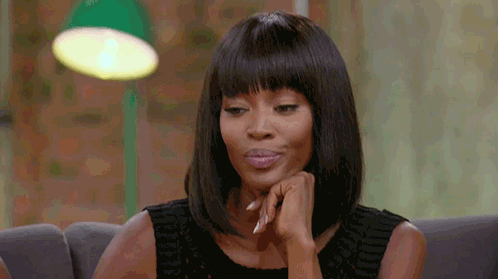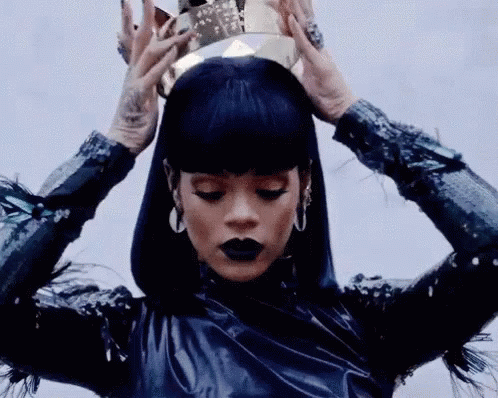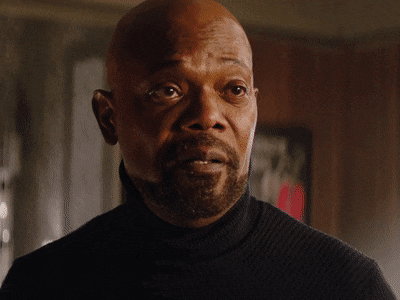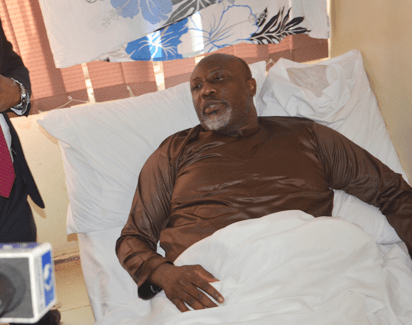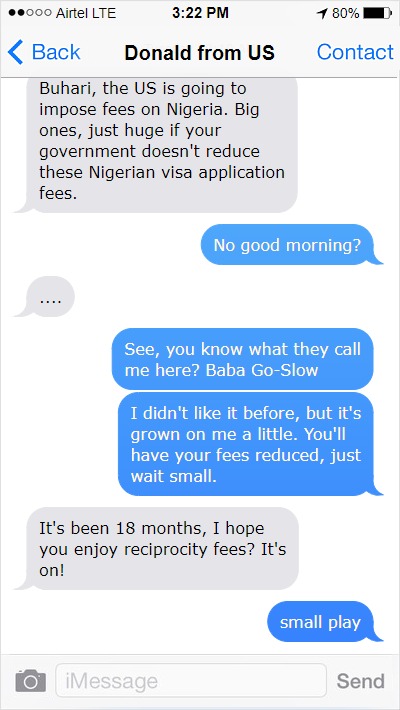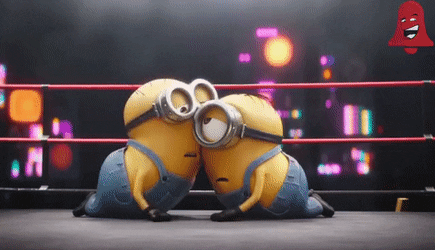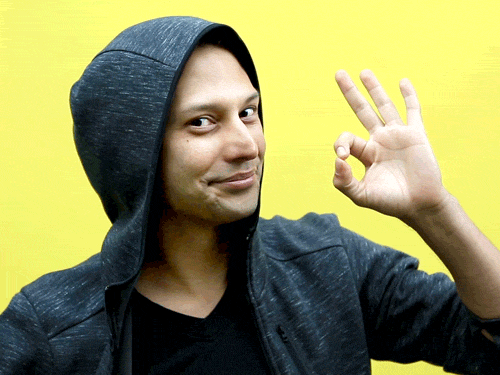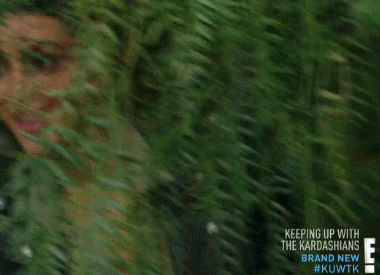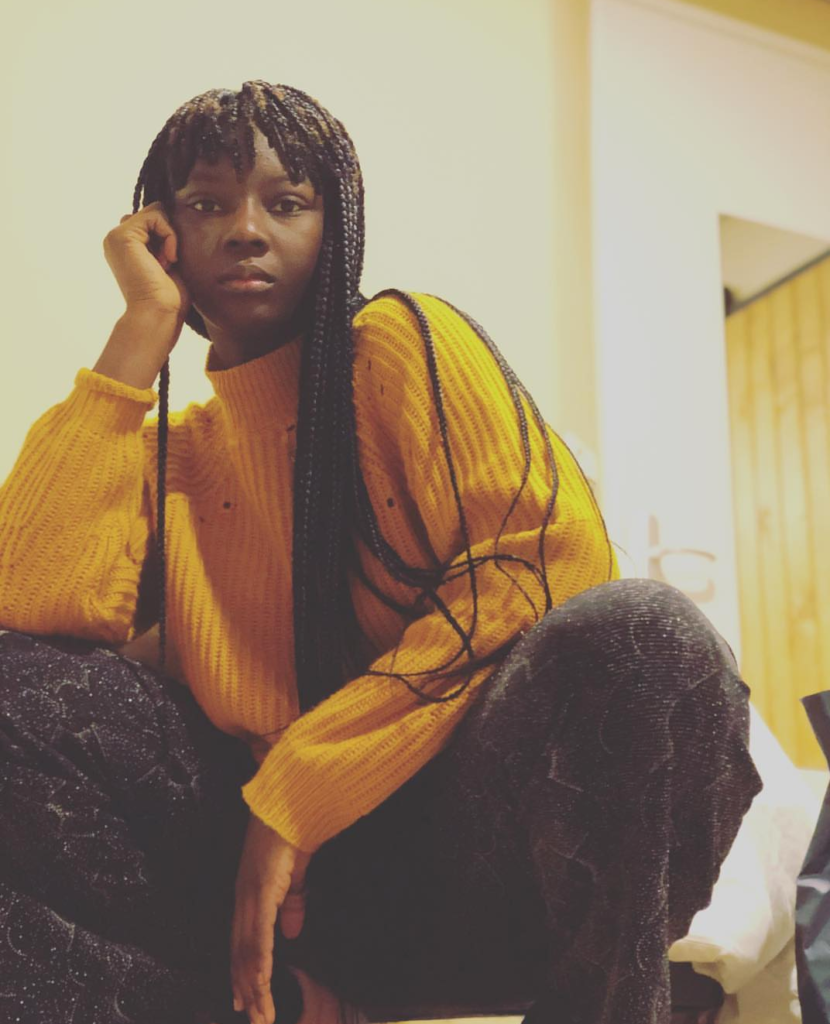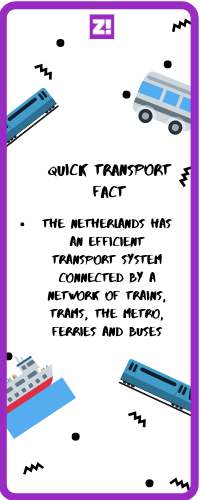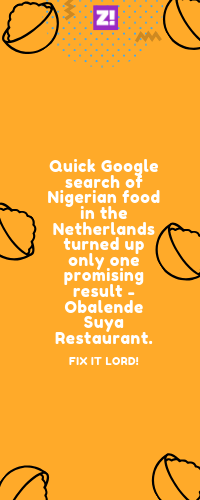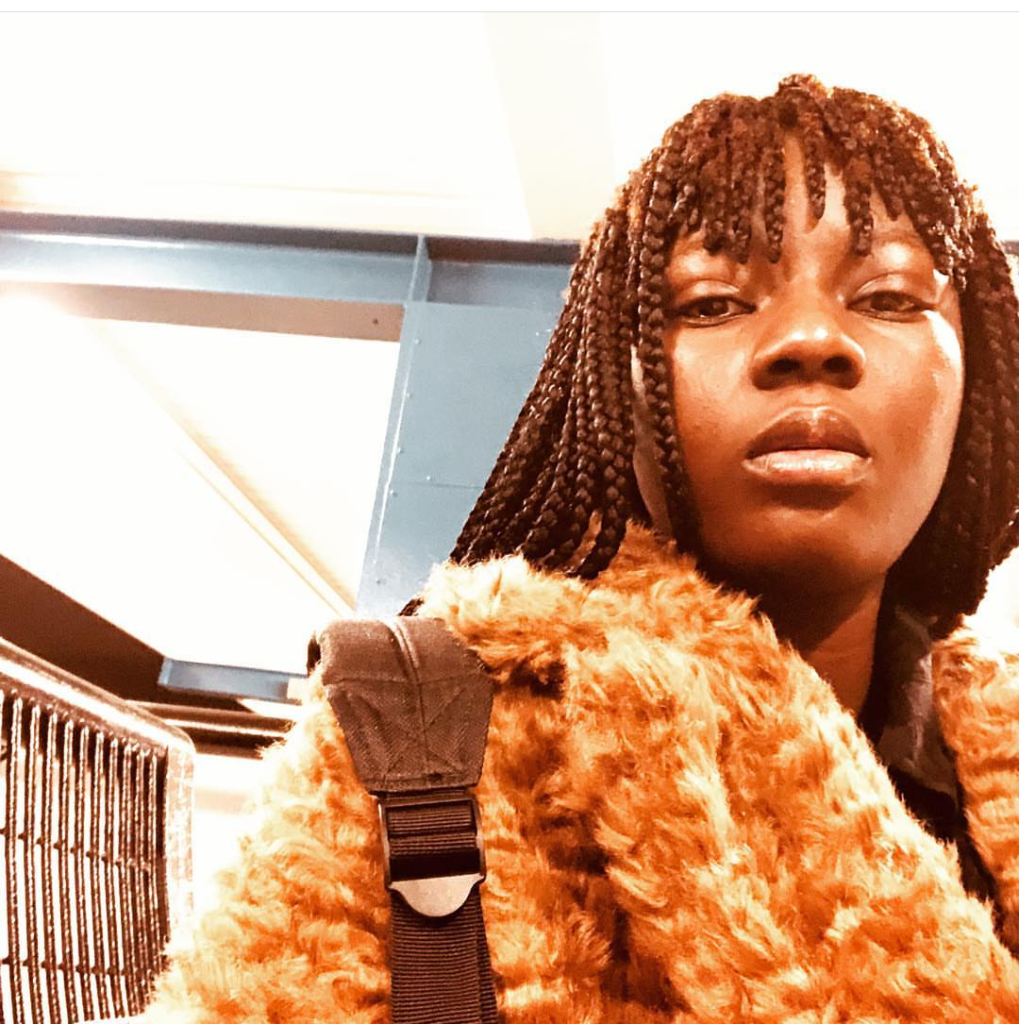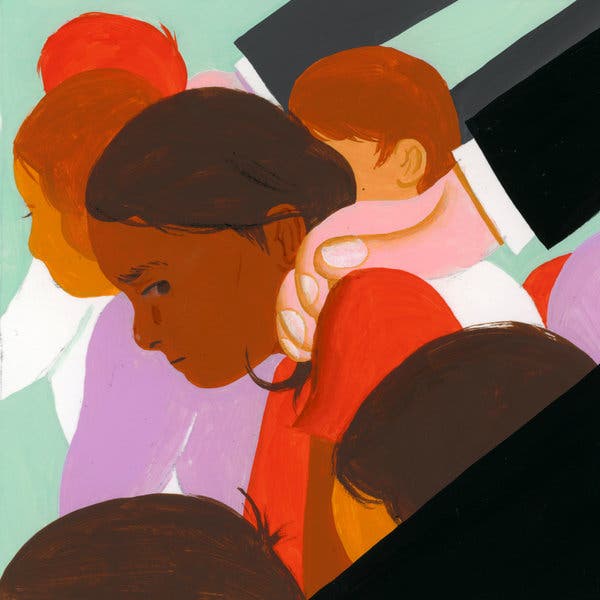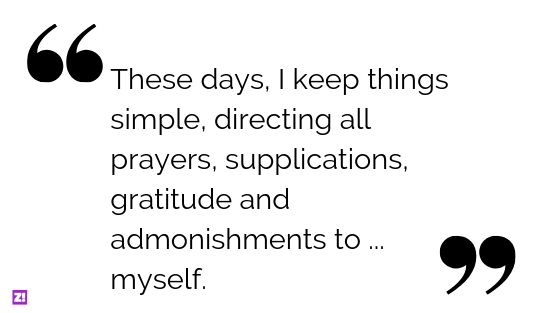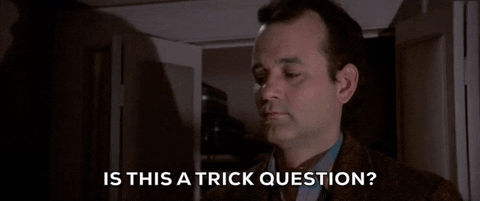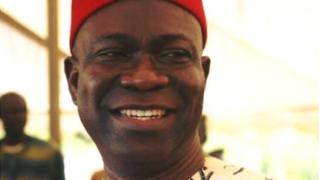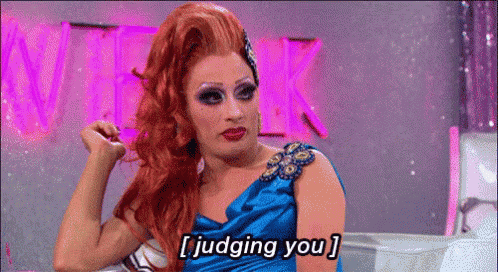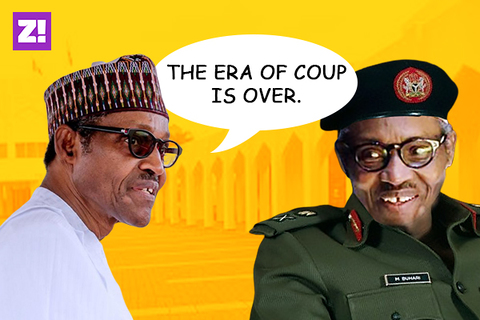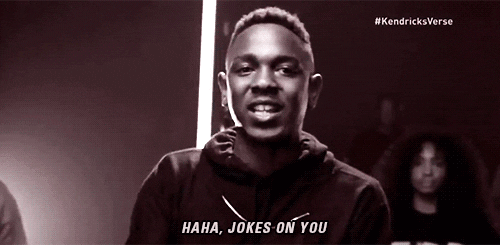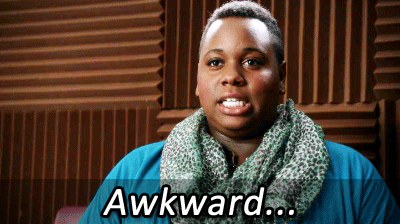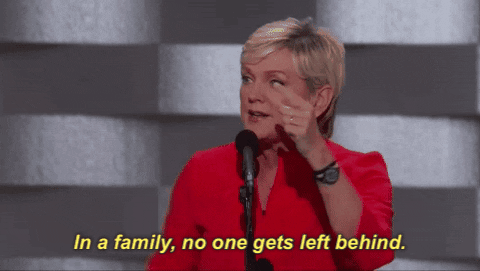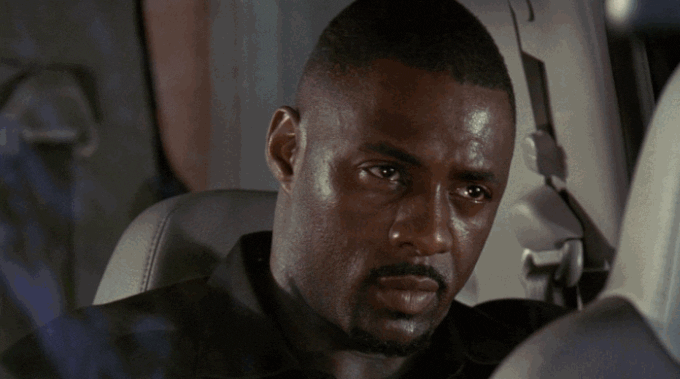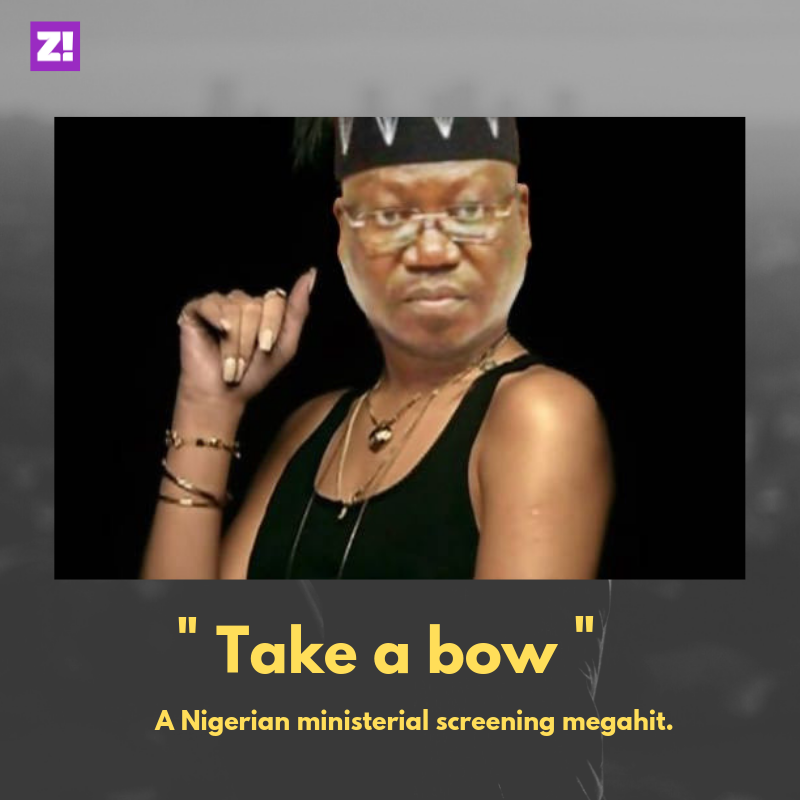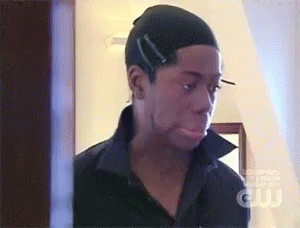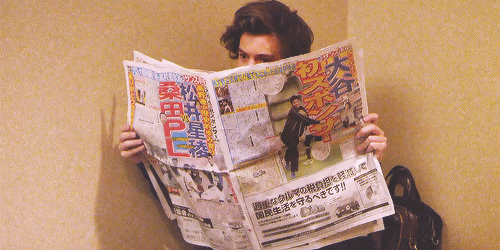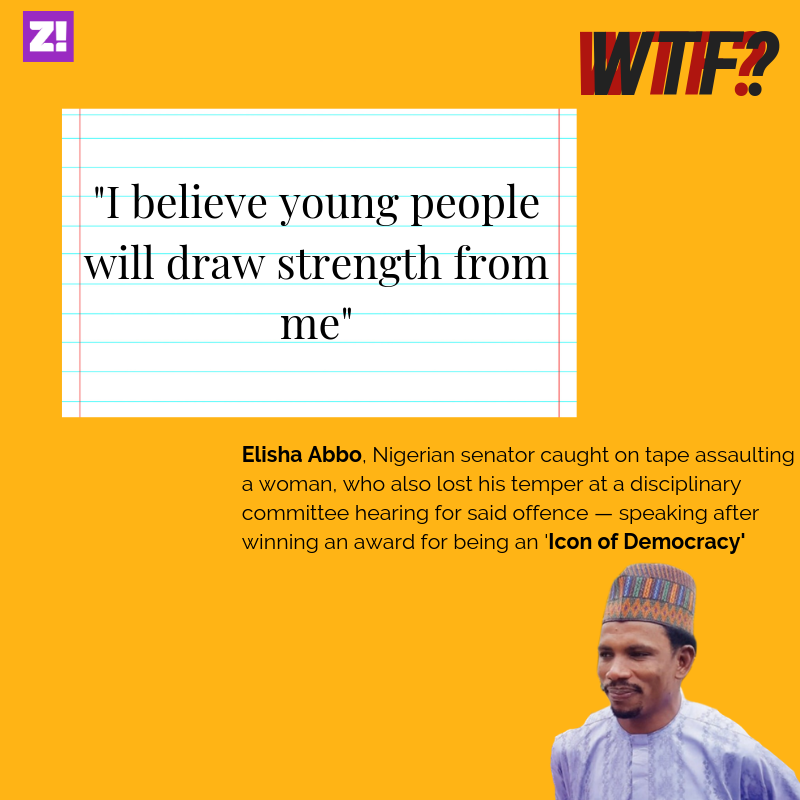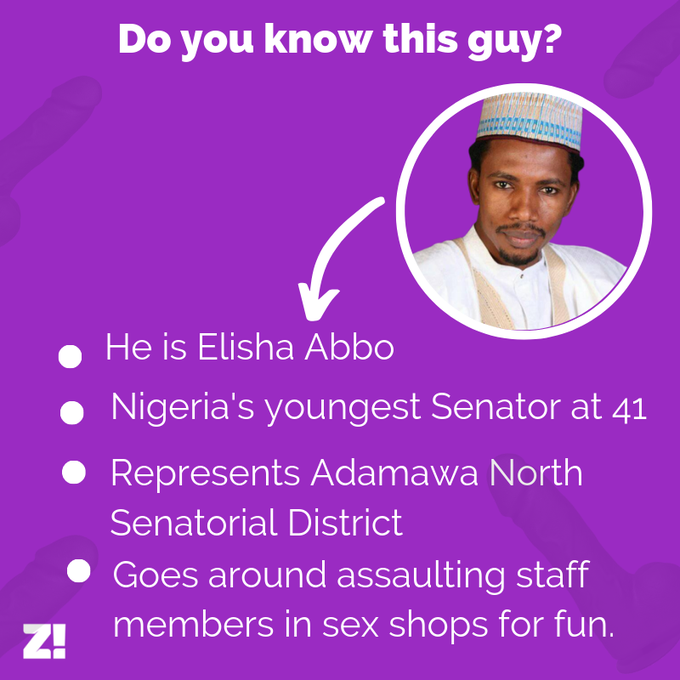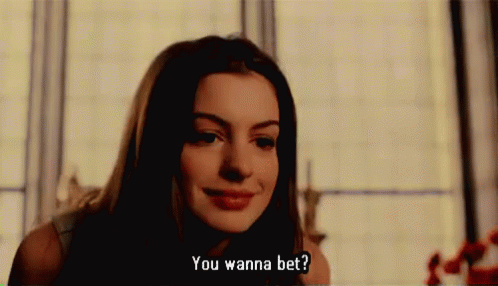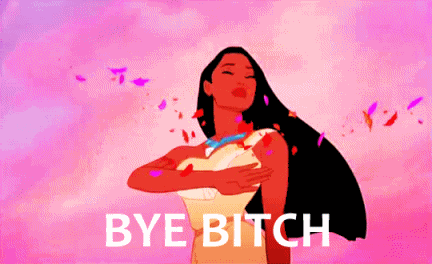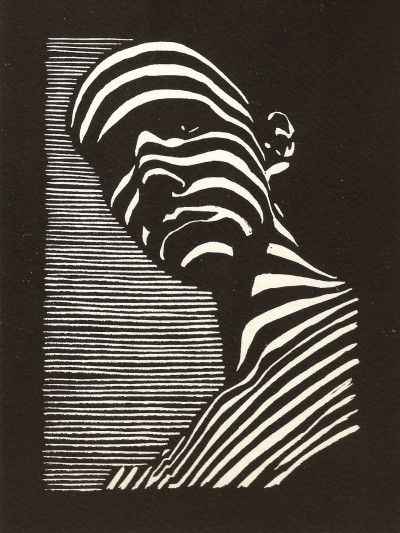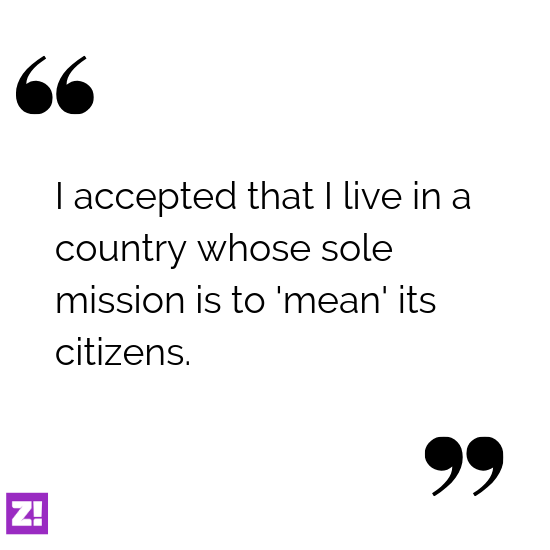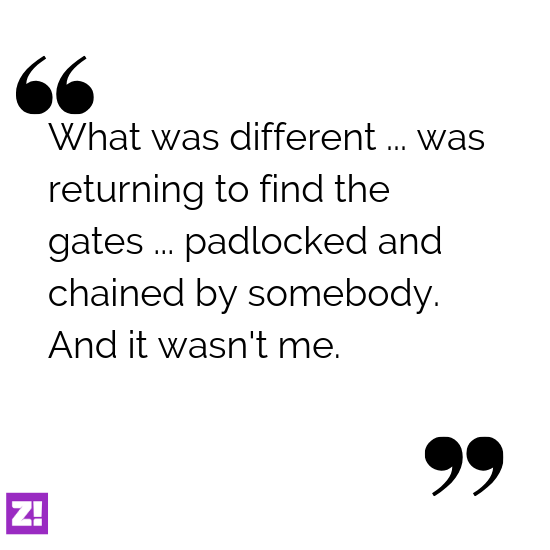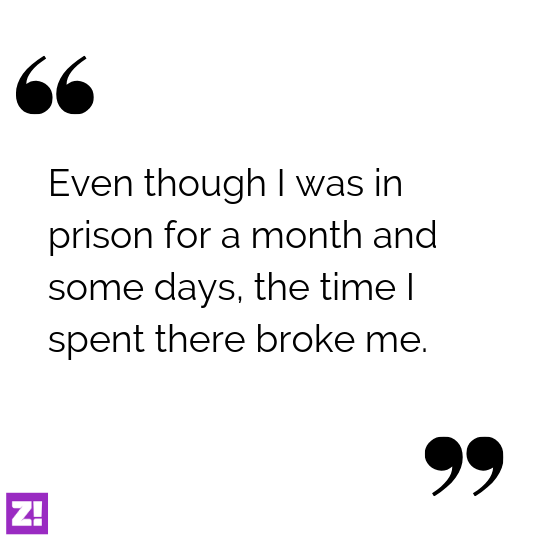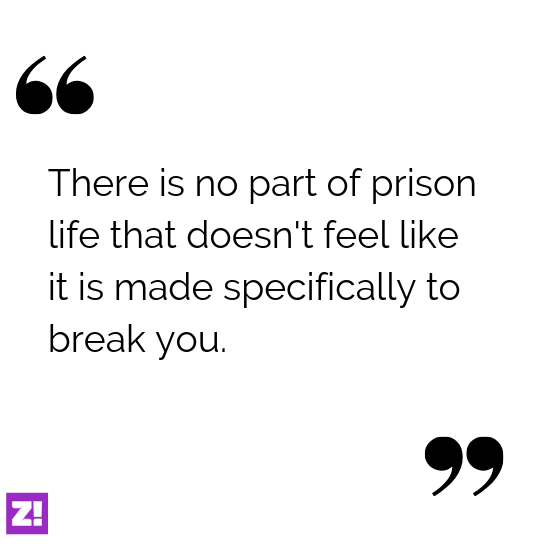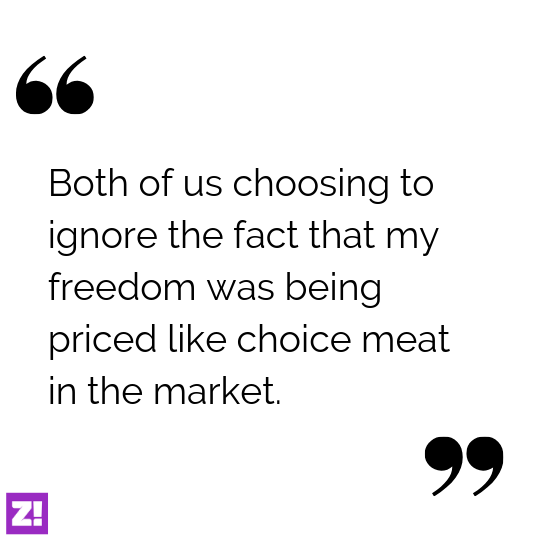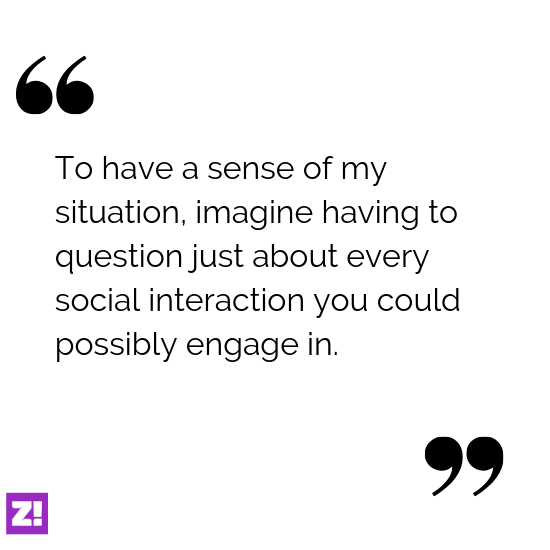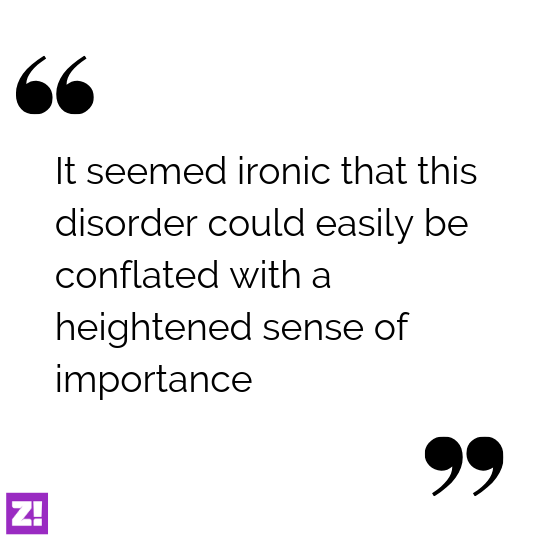
To get a better understanding of Nigerian life, we started a series called ‘Compatriots’, detailing the everyday life of the average Nigerian. As a weekly column, a new instalment will drop every Tuesday, exploring some other aspect of the Nigerian landscape.
This week, we have a natural born salesman narrate the thrills of working in sales in Nigeria and his journey to becoming a professional.
Think about the most potent high you’ve ever felt: the numbing goodness of an intense orgasm; the clouding weight of great marijuana; the rapturous feeling of cocaine — if you’re into any of these, multiply that feeling by three, add one-half for good measure and maybe, just maybe you’ll get a fifth of the thrill that comes with working in sales in Nigeria.
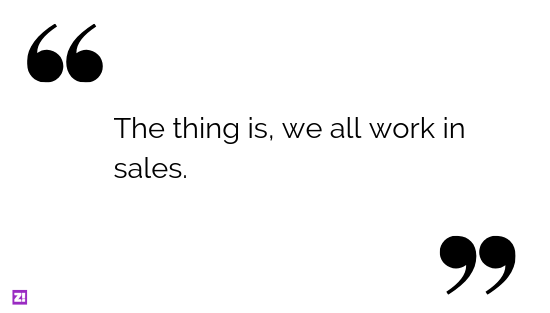
The thing is, we all work in sales. You’re selling the threat of a lost trade when you convince that butcher to sell you meat at a 35% markdown. You’re selling the promise of a changed heart when you persuade your ex to return after cheating. And you’re currently doing a wonderful job, selling yourself dreams if you choose to remain in a country that won’t love you as well as Canada can. But while sales to you might spell intermittent domestic triumphs, to me, it’s a daily professional target — convincing individuals and companies into taking bargains, purchasing products and buying up ad spaces they don’t really need, and yet somehow making it out to be that I’m a hero doing them a favour by taking their money.
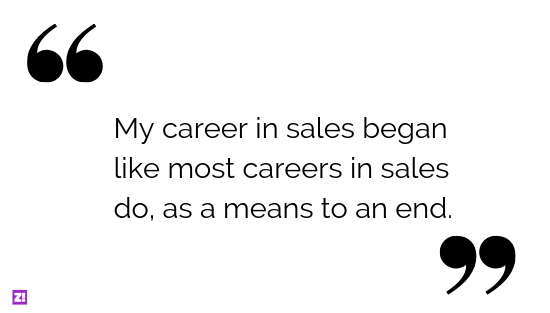
My career in sales began like most careers in sales do – as a means to an end. I was fresh out of university with a B.Sc in cell biology. I was in need of a job that wouldn’t peer closely at my lack of experience. An internship role at an e-commerce firm surfaced; I was to handle product placements on their website, which is shorthand for saying: I had to make sure products were arranged in a way that encouraged impulse buying and made purchasing sense.
When I first took the job, I wasn’t entirely sure what product placement entailed. What I originally thought was to be the alphabetical arrangement of merchandise on the site, soon turned out to be hours spent poring over inventory, trying to determine what items would make the sense adjacent to a pink waist trainer and a gym water bottle shaped like a dumbbell.
At the time, I didn’t consider my role to be in sales. Sales was the man in the bus convincing you to buy his all-curing, all-enhancing powder. It was the broadcast on the radio shouting at you to secure land; that TV advert nudging you to purchase butter. Who knew sales and advertising weren’t one and the same thing? And a few product re-arrangements at the backend of a company website could produce a 25% bump in earnings for the month?
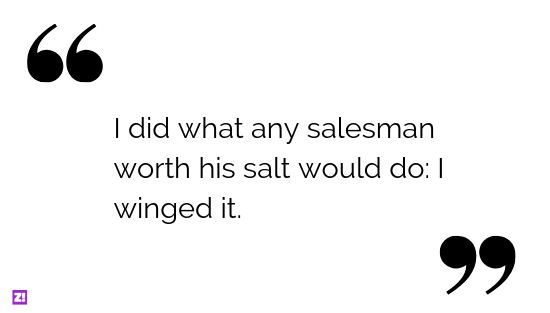
By my third month handling product placements and bringing the same positive results, I was promoted (still as an intern), to the floor of the company’s retail store, with the directive that I produce the same results. Without the safety of a computer screen, I did what any salesman worth his salt would do: I winged it. I sang for customers, I tried clothes on for them, I gave heaps and heaps of undeserving compliments. If they wanted my blood, I probably would have injected and drained it on the spot! I did achieve the bottom-line goal to the applause of my supervisors.
While I wasn’t in any way adequately compensated for my efforts, what I lacked in a healthy account balance, I gained in a sense of pride that my work was being recognised. I really was good at this sales thing!
But by my fifth month, that pride had taken quite the fall. Despite putting in the work and hours of full-time staff, my employers kept me on an intern’s salary, which may have been payment in exposure for all it was worth. I had to accept the game really was the game when, rather than offer me the staff role I was so obviously qualified for, my employers put on their shiniest sales hats, and tried to get me to buy the idea of an additional three-month internship ‘trial period’ before awarding me a full-time position. I took my experience, walked out of their doors and never looked back.
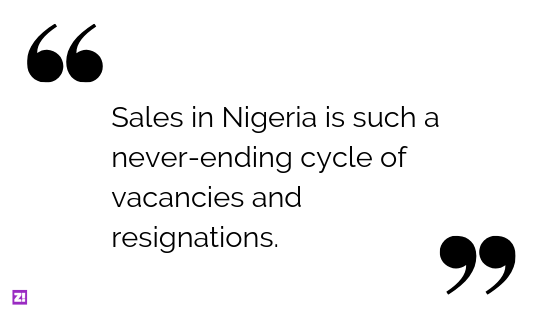
It didn’t take a month to find a job. This time, it was as one of the recruits to the sales team in one of Nigeria’s newest e-commerce giants. While some merit played a role in finding a job easily, the reality is — sales in Nigeria is such a never-ending cycle of vacancies and resignations, it would have been difficult to not find employment within that time.
Here’s free advice, if you want to be successful in sales in Nigeria, forget what they say about 1% inspiration and 99% perspiration. Sales will break that equation and introduce three new variables: looking and talking a big game, while of course, being able to back it up
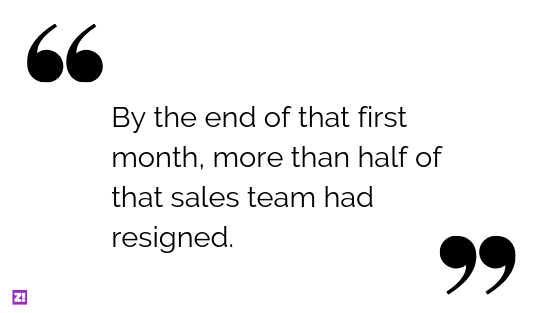
In my first month of employment, I was with a team of fresh recruits that had bachelors and masters degrees in sales. These guys rode in cars I had bookmarked for my five-year goals and spoke in accented sentences punctuated with enough “wanna” and “gonnas” to get the typical Nigerian employer all hot and bothered. If they walked into meetings with their Macbooks, accents and car keys, soliciting 7-figure deals, they’d probably have left with 8. I was left wondering if I could make the cut, I felt like a minor character playing in their show. Appearance really was everything, or so I thought …
By the end of that first month, more than half of the sales team had resigned. Here’s why:
When you’re just one of Nigeria’s leading e-commerce sites, setting its sights on the number one spot, there are a number of things you will subject your sales team to:
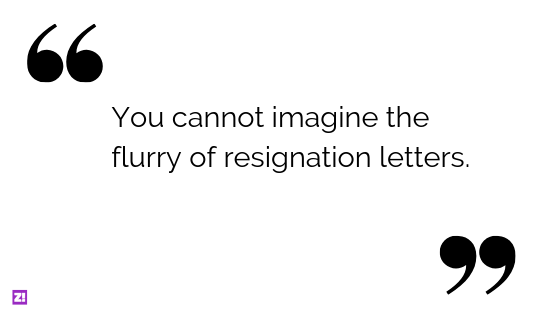
Individual weekly targets and mid-week progress meetings, so a slacking member of the sales team can explain to the Managing Director and supervisors present, why only ₦ 50,000 had been made by Wednesday when the week’s target was ₦ 1 million.
A reward system so only high-performing members of the team ride to meetings in company cars. The rest can sort their way out on a miserly ₦ 4000 weekly transport allowance.
Promise a 20% commission for employees able to meet their monthly targets, but right before they achieve it, switch the game on them and double the goal.
In my first month, say the monthly target was ₦ 4 million in sales, by the third week, it doubled to ₦ 8 million. You cannot imagine the flurry of resignation letters.
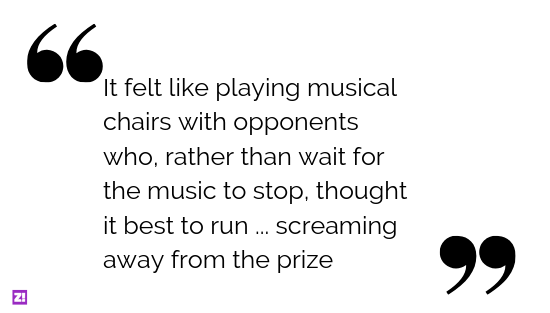
In that month, I saw grown men have panic attacks at the thought of going into weekly meetings and explaining why their numbers were running short. People so jittery with fear they couldn’t even muster the strength to go into client meetings for fear of continued failures. Every week brought a new set of resignations. It felt like playing musical chairs with opponents who, rather than wait for the music to stop, thought it best to run, kicking and screaming away from the prize.
And yet somehow, in spite of all the chaos around me, I was thriving! I made my first million from a client I somehow convinced her to advertise her products on every single platform we owned – newsletter, website, banners and ad spaces. From there, I was on a roll. You cannot imagine the thrill of closing in two ₦250,000 deals the day of your mid-week progress report, or the high of entering into a client meeting, coming out with more than you bargained for. Even though I was probably just a cog in the capitalism wheel, I luxuriated in those highs, looking forward to my next fix — the next scheme, the next deal.
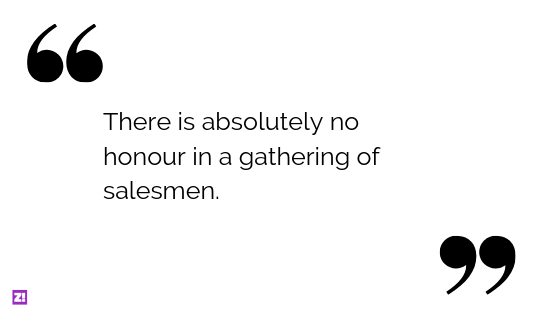
After the purge of the first month, my views changed from being small fry in a pool full of sharks to being an equal amongst thieves. Thieves because there is absolutely no honour in a gathering of salesmen.
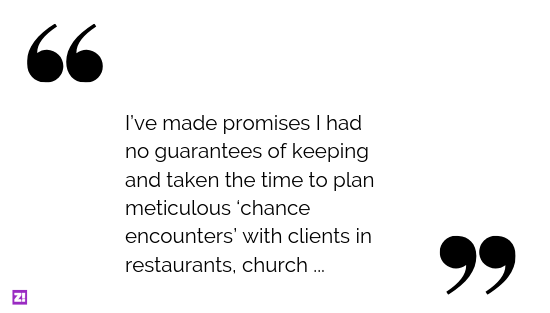
For the rest of my time in this company, it was routine to steal clients from co-workers. Your colleague was taking too long to land a client? Undercut him by reaching out to the same client, and offering a discount of whatever rates are in negotiation. Think your associate is on the brink of reeling in a high-income organisation? Sabotage his ass by reaching out to someone higher than his contact in said organisation, and promising a sweeter deal. There is nothing a salesman wouldn’t do to land a deal. I’ve made promises I had no guarantees of keeping and taken the time to plan meticulous ‘chance encounters’ with clients in restaurants, church and even a child’s birthday ceremony.
Even with 6 years in the game, these are some schemes I still find myself pulling.
These days however, I’ve moved on from that e-commerce giant, on to the sales department of an architecture firm before my current employ as the sales lead in an entertainment firm. But even after all this time, there’s nothing quite like that first thrill of a potential client in sight, the rush of reeling them in and that eternal high of landing them.



